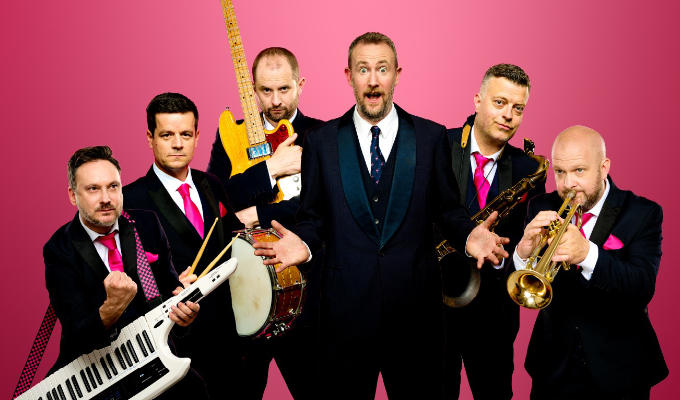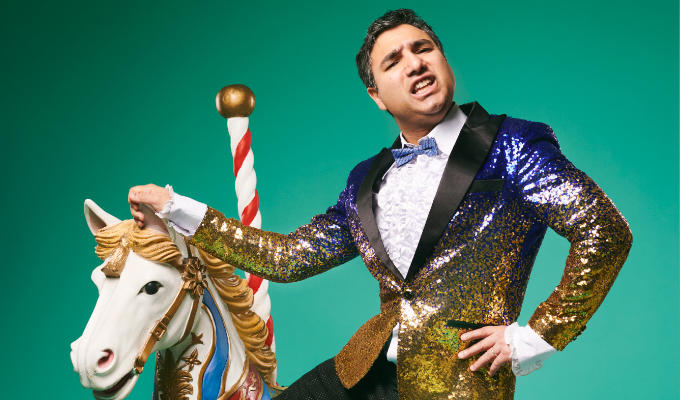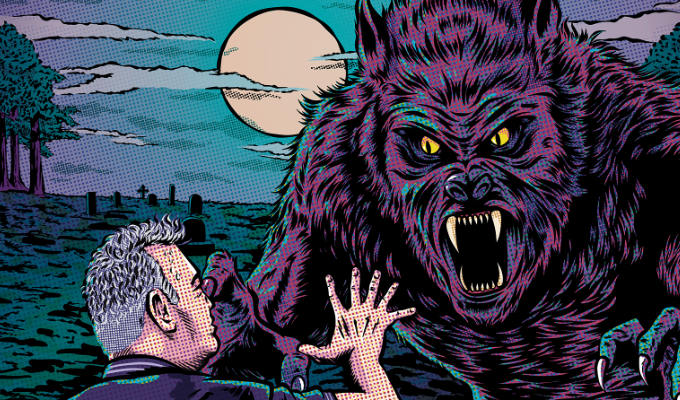The comeback comedians
Dave Cohen on the comedy stars returning to the stage
One comedian who must have been relieved at the recent fury surrounding Russell Brand and Jonathan Ross is Steve Coogan, who has now relinquished his tabloid title as Britain’s Most Evil Funnyman.The whole affair took the heat off Coogan and his current comeback tour. Reading the acres of flak he received for what appeared to be a couple of sub-standard gigs at the start of the tour, you’d think he’d been spotted lurking with Gary Glitter outside the school playground.
Coogan is one of a number of extremely successful comedy performers from the Eighties and Nineties who have, this autumn, swapped the relative comfort of TV land for the far riskier prospect of performing live.
What it is that makes a comedian, already proven and celebrated as successful, want to go back on stage after so many years away? You can see why Frank Skinner is performing live again after ten years as a TV star. The stand-up stage has always been his natural home, and the sacrifice required – long dull, tiring days on the road, boring nights in hotels, and endless rounds of local TV and radio interviews - is made worthwhile by the adulation. Also there’s the urge to re-connect with a crowd that isn’t TV cameramen or a Home Counties studio audience.
Likewise Eddie Izzard, who for all his forays into American TV and the movies remains most famous and best loved as a stand-up. I can’t say this with any authority, but I’d be surprised if his nights off in LA weren’t spent hanging out at comedy clubs, improvising on stage with other comics or on his own. Then there’s Lee Evans, who sees the building of each new giant stadium as one more challenge to add to his growing list of records as the world’s most watched stand-up comic.
And there are those who despite long TV careers have never stopped performing live – Jack Dee, Jo Brand, Mark Thomas, and of course Paul Merton, who has rarely missed a Sunday night with the Comedy Store Players since he joined the group in 1985.
Steve Coogan, though, is different. All those already mentioned spent years honing their craft on the London circuit – Coogan dabbled but rarely performed live. So why has he come back? Quite clearly, he doesn’t need the money. And it’s not just his rising status as a Hollywood player – he’s also one half of Baby Cow, probably the most successful independent TV comedy company of the last ten years. And why make it so hard for himself? The title of his current tour – Starring Alan Partridge And Other Less Successful Characters - is a nice self-deprecating joke for us comedy anoraks, but sends a mixed message to the audience, almost asking them to be disappointed with all of his support acts.
My guess is that for Coogan, and all the others, there remains a feeling of unfinished business. A sense that however far you climb the ladder of success, there’s a nagging suspicion that you could go just a little bit further.
And I can’t vouch for it, but knowing what most comedians are like there must be a certain professional jealousy even at the very top. Jo Brand and Jack Dee, hugely successful live acts by any definition, must however look on in awe at the size of audience Lee Evans manages to achieve. Evans meanwhile can only stare wistfully at Coogan’s blossoming American career – while all of them must gaze with astonishment and no little envy at the stratospheric rise of Ricky Gervais to Hollywood lead. Gervais, of course, almost certainly spent the first 15 years of his non-comedic working life shouting at the telly in his living room that he could be funnier than that.
But what of those a little lower down the comedy league tables – comedians who achieved much success as stand-ups then packed it in?
Nick Revell was as successful as any comic who worked on the circuit through the Eighties. For many years he was one of just three regular comperes at the Comedy Store, and he wrote and performed a string of successful Edinburgh Fringe shows. A promising parallel career stateside beckoned – this at a time when Billy Connolly was the only British stand-up to have made a name for himself there. Then, in the early Nineties, Nick stopped.
He became a successful TV and radio comedy writer, and continued to perform in several series of his own radio shows. Then around 2003, he decided to return to stand-up. He could have just contacted his old promoter mates, most of whom remembered who he was, and asked for his old gigs back. But Nick realised the landscape had changed considerably in the decade or so he’d been away.
And so he started where every new comic starts, ringing up promoters for five and ten minute try-out sets in tiny clubs across the capital, traipsing across London from Wimbledon to Walthamstow in search of regular paid gigs. It’s the sort of thing you do in your 20s without blinking, but for a man in his mid-40s well, everyone thought he was mad.
Nick argued that there was no point in him returning to stand-up unless he did it whole-heartedly. While agreeing in principle, I was sure that there were easier ways to come back, without such enormous sacrifice. Two years ago I made my own attempt to return to stand-up. I’d been working as a comedy writer for some years, and found myself writing things that only seemed to work when spoken by me.
I still can’t pinpoint one reason for wanting to come back. Unfinished business? Partly. Also there was an urge to reconnect with something I’d done quite well a long time ago. I missed the old dressing room banter. And I’ll admit to more than my own small feelings of professional jealousy.
Like a fairly successful retired boxer, who thinks if he gives it one more shove he can ‘make it’, I convinced myself that there was time for one more go at the title. Of course all those sensible ‘quit now’ brain cells have long been pummelled out of the boxer’s head by a few too many defeats.
I wrote some new songs, dusted down a few old favourites, did several try-out gigs and new material nights, and managed to cobble together an hour-long show that ran for four nights at Lowdown at the Albany, which did okay, got no reviews, and ended up losing me a total of around £37. I should have heeded Nick’s example – you can’t come back to stand-up without committing to it.
Common sense prevailed, and I decided to move on, and get on with the rest of my life. In May 2006 I decided there was nothing wrong with writing comedy and performing in occasional radio shows, and no shame in accepting that my live performing days were well and truly over.
Published: 5 Nov 2008






